Roll For Insight: What Are Your Inspiring Reads?
July 12, 2019 by brennon
This week I'm going to be diving into something which has come to light for me over the past few weeks. What reading out there has informed and inspired me to take certain routes through the hobby?
There are lots of different authors and books out there that have stuck with me over the years, each offering up something new which has influenced how I roleplay, wargame and in many ways paint too. So, I'm going to be going through a few of those here with you today, talking about just what it brought to my tabletop life.
Martin The Warrior: A Tale Of Redwall
The first book that really set me on the road to exploring Fantasy as a genre was Martin The Warrior by Brian Jacques. It was neat, to begin with, as it featured animal adventures and then the added Fantasy exploits began a slippery slope.
In terms of themes and what it added to my tabletop life, it not only meant that Burrows & Badgers became my favourite game but it also got me excited to collect interesting characters and build warbands of downtrodden individuals who are fighting against a nefarious evil. Martin was a valiant hero, rising up from nothing, and I have used that trope many a time when it comes to building characters in my roleplaying games. From a painting point of view, the bright colours seen on the covers were a good guide to me later on down the road (once I was past the mud brown phase) to challenge myself and work on vibrant pieces for the tabletop.
It also taught me that even the most innocent looking of Fantasy tales has a twist in the tale (pardon the pun). Even though Martin The Warrior looks like a kid-friendly adventure there are some truly harrowing scenes in the book which showed the darker side of Fantasy to me.
The Hobbit
Next up, we're delving into a proper classic and probably the birthplace of modern Fantasy. Tolkien's work has informed the lives of so many people and I was no different. The Hobbit informed the way that I explored storytelling in roleplaying games for many years and still does. As well as exploring the idea of that classic dragon-slaying adventure it also helped me develop interesting NPCs and villains for the players to run into.
I have used characters like Bard The Bowman as a template for many a grizzled adventurer that the players bump into and terrible creatures like Gollum who could either be friend or foe. I love trying to make a villain feel a little sympathetic and even though Tolkien didn't explore it much in detail within The Hobbit I took that and what was learned from The Lord Of The Rings in order to design those types of creatures.
It also taught me to include some levity in my adventures. Too often we get bogged down in the grim and the dark and forget that adventures often include fun times singing songs and wandering through beautiful landscapes too. So, I make sure now to always include those kinds of light moments in my stories.
Trollslayer (And The Slayer Series)
Now, this was one of the first books that took me into the background of Warhammer Fantasy. As well as informing the kinds of armies I played in game, like Dwarves and The Empire, it also really got me interested in writing good narrative combat encounters.
Nearly every fight that Gotrek & Felix get drawn into throughout the books is given a lot of love and care by King and subsequent authors. Every strike, blow, cut, stab and punch is given a lot of weight! So, when I do combat encounters in my roleplaying games now I always include a lot of that in my descriptions on how both the player's strikes land and how they get hit in turn. I think it adds a visceral and brutal feel to fights and makes the players fear for their life!
It also got me thinking about how even the most one-dimensional of characters can actually have lots of depth. Gotrek is a slab of muscle, slowly hacking his way through the Old World but I think King and others really added a few facets to his character which made him feel more like a sorrowful soul. It meant that whenever I came to building backstories for characters I always considered just how they might have come to be the way they are.
Oh, and as mentioned above, the books are responsible for my endless spending on bearded folk and swaggering warrior poets too.
Mathias Thulmaan: Witch Hunter
We're sticking with The Old World and Black Library for a moment whilst I talk about the work of C L Werner. Ever since I picked up Witch Hunter and got stuck into his stories about Thulmann I have been drawn to zealous and pious characters in games. This doesn't mean I've always played a Witch Hunter however as this spreads into the way I play Paladins and Clerics too. I love the idea of someone powered by their faith in a higher power, driven to feats of heroism.
However, I also like the idea of playing characters who know that their faith isn't everything. Yes, it informs their character and drives their ambitious but they also know its a tool. My Paladins were always characters who were devout but also knew that the power of belief was also sometimes more powerful than it's reality. The same goes for Warrior Priests I played in Warhammer Fantasy Role-Play.
Thulmann also drove the collecting of my Witch Hunter warband in Mordheim and I even had a character named after him within my group. I even planned an entire army out for use in Warhammer Fantasy driven by a Witch Hunter and his zealous followers. Alas, it never came to fruition but it was going to contain a bound wizard they had captured and now used against the enemy, unleashing him from his chains when the need was dear.
Witch Hunter also features lots of colourful side characters and villains, some of which weren't your typical muscle-bound fighters. Herr Doktor Weisch, whom the characters chased in the books, was a fascinating enemy as he couldn't be defeated purely by beating him up...there was a nuance to him and you had to get around his scheming in order to win. This then helped me design characters I used in subsequent roleplaying games.
The First Chronicles Of Thomas Covenant, The Unbeliever - Lord Foul's Bane
So, now we move onto a book which really changed the way I perceived 'heroes' in my stories and adventures on the tabletop. At its core, Lord Foul's Bane is a classic fantasy tale but the twist is that the main character, Thomas, doesn't quite believe any of it is happening for a great deal of the book. This leads him to make some questionable decisions and to be frank, makes him a very unlikeable character.
It is a tough read, I won't lie. In one of the opening scenes, Thomas Covenant rapes another character called Lena. Yep, it's not pretty and it's not overly clever within the narrative...but it completely opened my eyes to the fact that sometimes the heroes of the story aren't the nicest people. Now, in no way do I defend Donaldson's writing as in many cases it is pretty lazy, but the story that then follows after Covenant realises what he's done and the reality of his world really changed the way I read Fantasy.
Now, whilst I don't think we should be dropping this kind of thing into all of our storytelling adventures on the tabletop what if the heroes that are needed to save the world aren't shining examples of humanity? What if they are murderers, thieves, sinners and heretics? Suddenly the way you role-play and battle on the tabletop takes an entirely different path.
This is why games like Necromunda and Mordheim then appealed to me even more. My warband wasn't out for the good of the people. They were there to rob everyone and murder those who tried to take their stuff! Suddenly my characters could be devious and underhanded and I could come up with new stories which were a lot more engaging than simply repeating the same valiant exploits of my knights in shining armour.
The First Law Trilogy
So, you know how I said that Trollslayer informed the way I explored combat in my roleplaying games? Well, Abercrombie and The First Law pushed that to the fore even further. I don't think there is anyone out there right now who writes combat the way Abercrombie does, making it feel sickening and glorious in the same sentence. The way he talks about foes that the heroes face and explains combat has done a lot for my storytelling skills! I am now known to my friends as the dude who puts Abercrombie into everything!
As well as brutal combat, The First Law is also (as the quote above says) Delightfully twisted and evil. Glokta is the perfect way to play what many would consider to be a cripple but with hidden darkness and power. Jezal is a wonderful way to take on the role of the dashing hero with flaws stuffed into his britches and Logen...oh wow...Logen is one of the best takes on a Barbarian and 'rage' that I have ever read.
Much like with Thomas Covenant, it really changed the way I thought about Fantasy and grimdark. As well as having brutality and darkness it also had heart and realistic characters that you could relate too.
The First Law also really helped me explore the ways you could use magic in your storytelling and roleplaying games. The Art as it's known in this Fantasy world is powerful, sickeningly so, but it comes at a price. For everything you do, there is a price. I love that take on a Wizard. Yes, you are drawing on immense power but you are also distorting the natural order. For that, the world strikes back! It's something which I was keen to see in Frostgrave, and I've tried to include it in some short campaigns I've run for Savage Worlds too.
I have been informed so much by The First Law that I've even put together a Project recently looking to build some of the characters from the novels.
The Dresden Files
Well, Jim Butcher is responsible for me stepping into the murky world of smoke and mirrors that is Urban Fantasy. Until The Dresden Files, I didn't know I needed to be a Wizard detective with a cool staff, awesome supernatural friends and an epic laboratory with a talking skull in it.
Harry Dresden is all sorts of cool and yes, the books have got me so excited to try and dive into a game which includes Urban Fantasy, the creatures just on the other side of reality and all the things that go bump in the night. It also does a great job, much like with The First Law, of exploring both the power and price of using magic.
Many of the characters from its pages are perfect for those who want pointers in character development. Thomas the Vampire is a great example of a tortured pretty boy. Harry is a great taken on the grizzled hardboiled cop with a heart. Karrin is a lesson in how to make a badass female character and Michael Carpenter is possibly the best take on a Paladin I've ever read. Use them as a template for your next RPG character and you'll love it!
But yes, The Dresden Files has been iconic in opening up a whole new subgenre for me and I can't wait to find out what else is out there. It has got me so excited to try and dive back into World Of Darkness too!
What Books Influenced You?
So there you have it. A series of books which have informed my hobby life in some way or another. A special mention should be given to White Dwarf magazine. Back in the day, those magazines really pushed me to collect and build cool armies and their narrative battle reports with amazing photography made me realise that it wasn't all just about shooting each other.
The next step is for me to ask you what books really helped you in your tabletop journey?
Let me know below!
"...it completely opened my eyes to the fact that sometimes the heroes of the story aren't the nicest people"
Supported by (Turn Off)
Supported by (Turn Off)
"Until The Dresden Files, I didn't know I needed to be a Wizard detective with a cool staff, awesome supernatural friends and an epic laboratory with a talking skull in it..."
Supported by (Turn Off)

































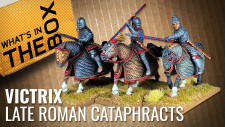
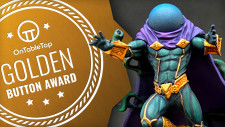
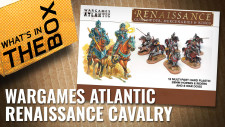
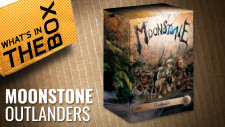




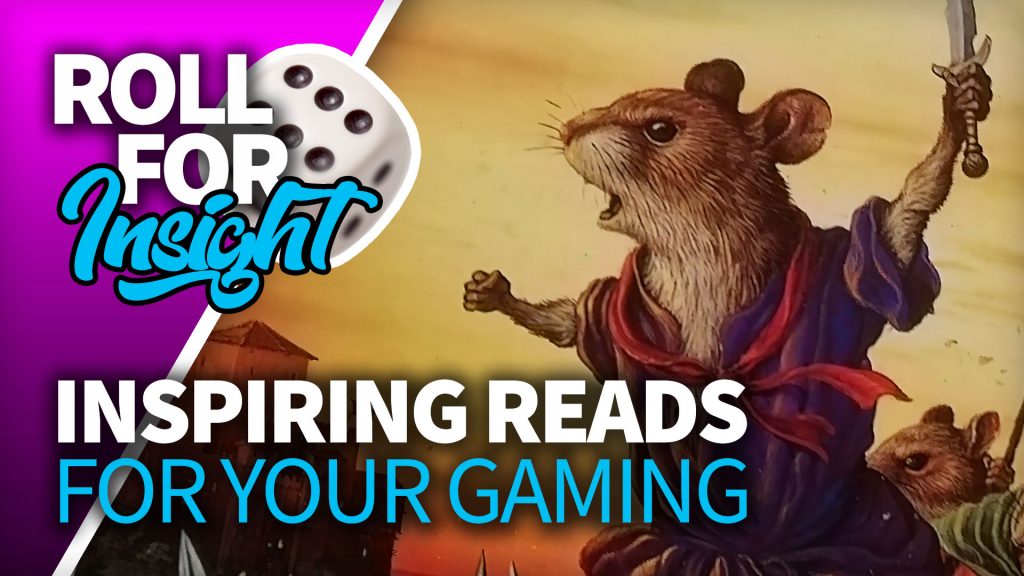
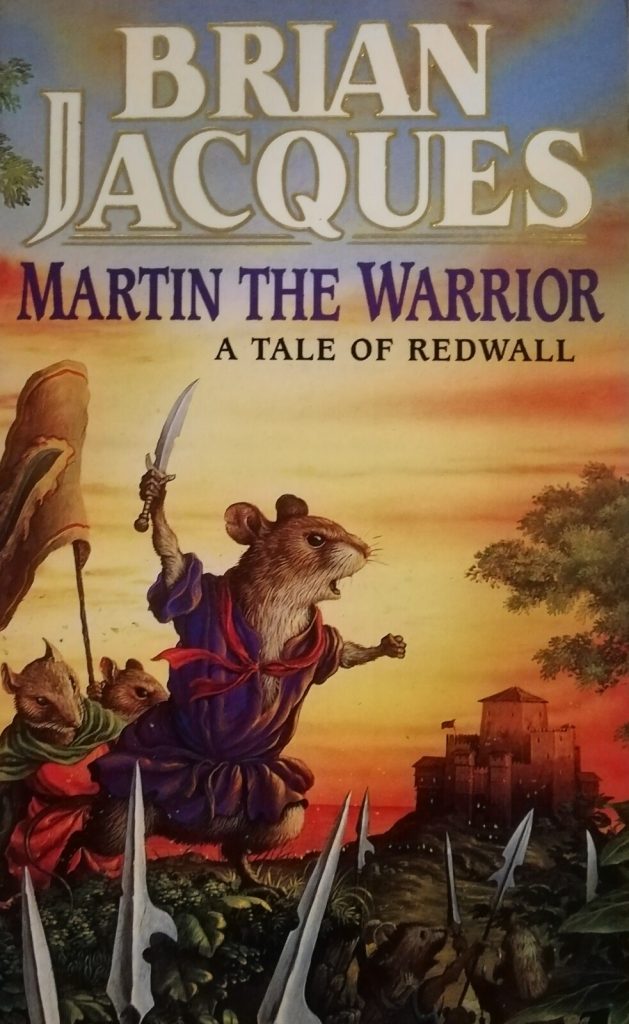
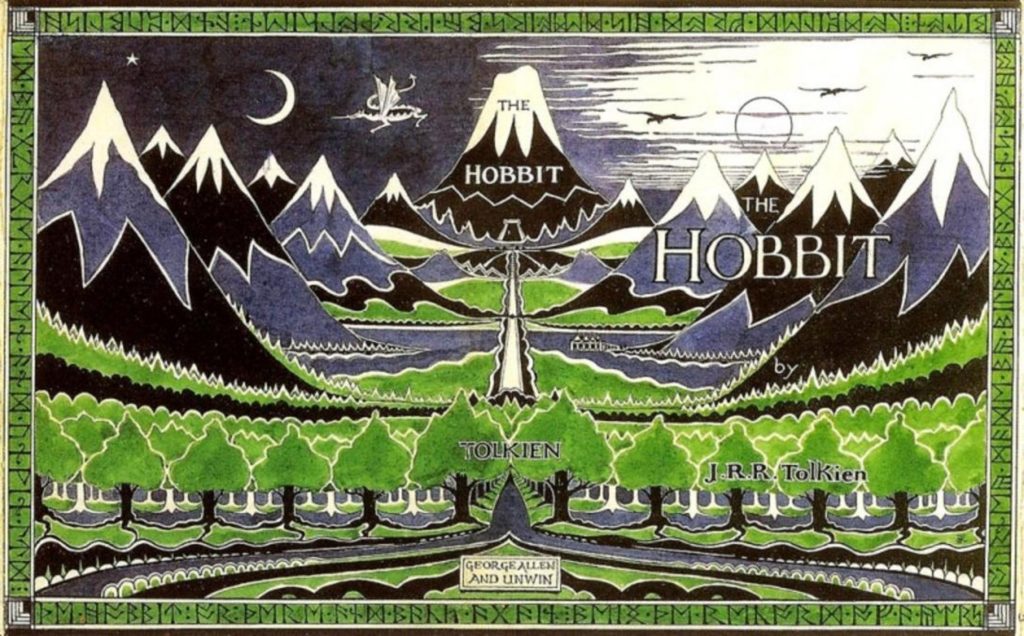
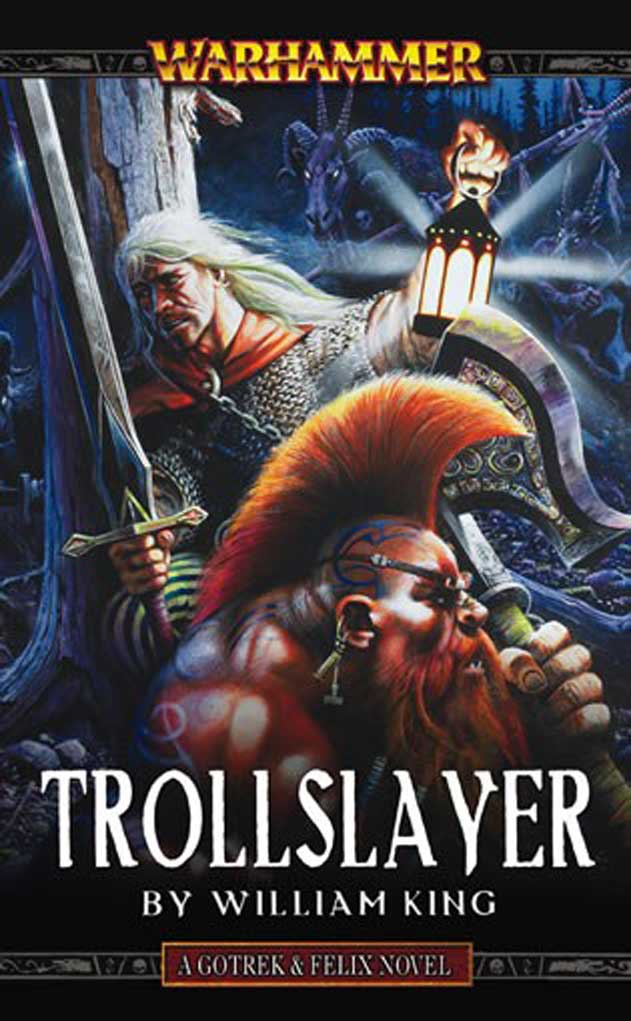
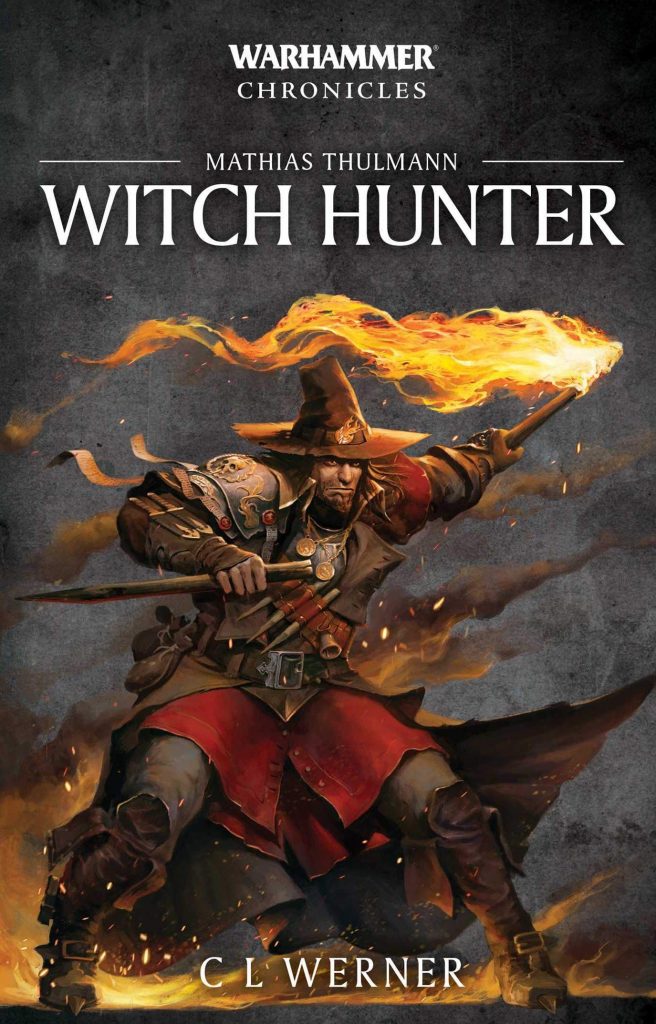
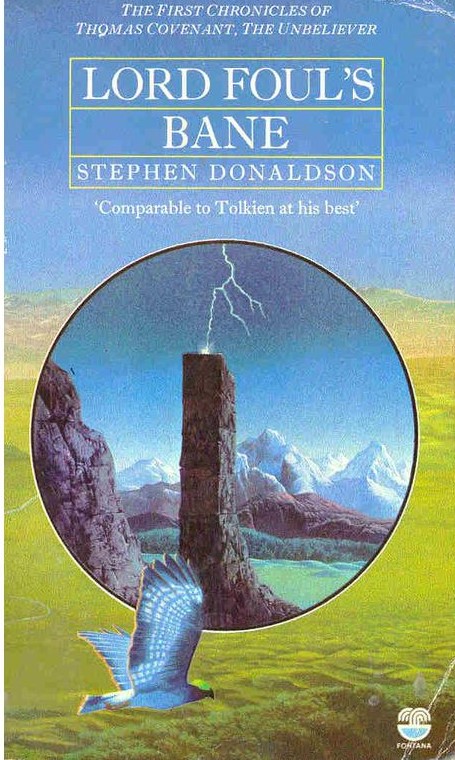
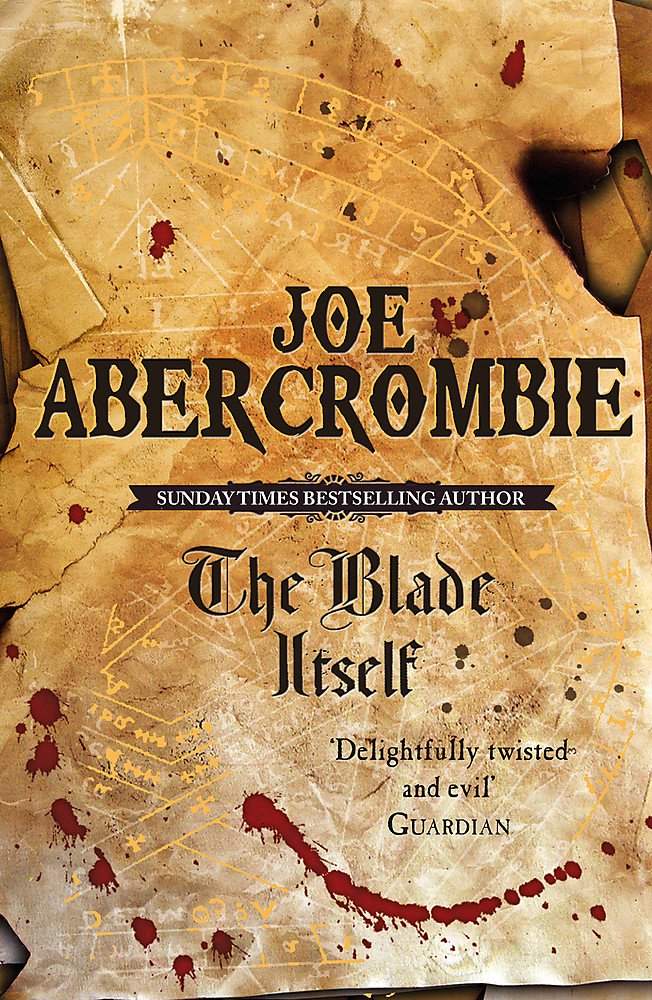
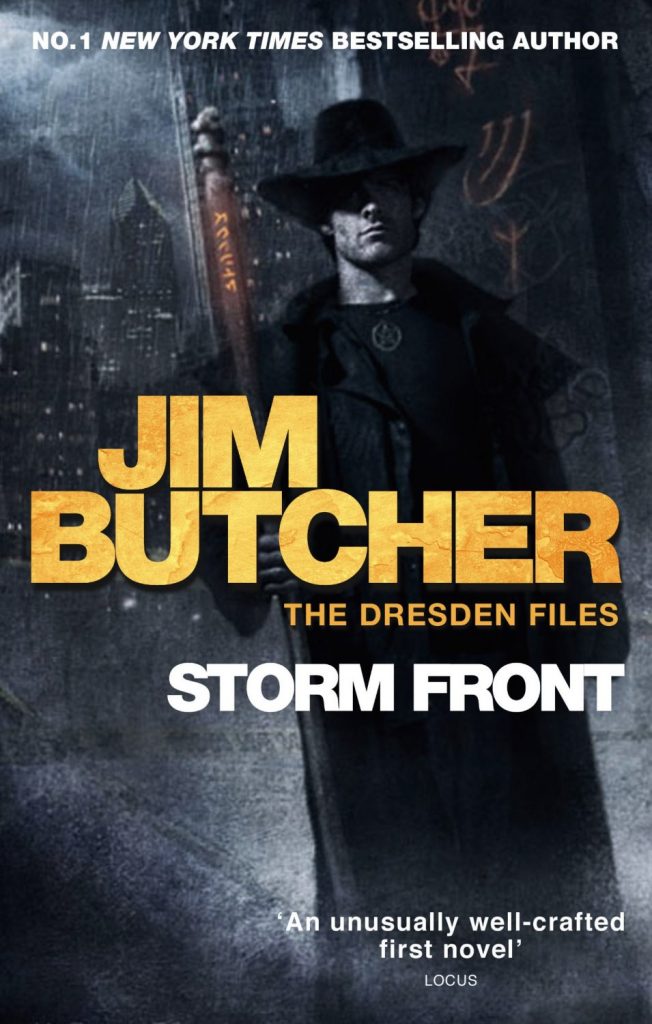











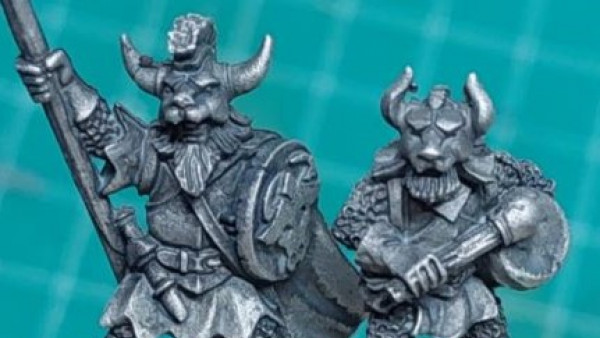

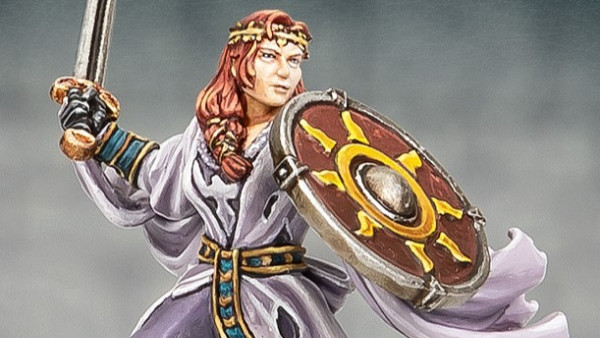
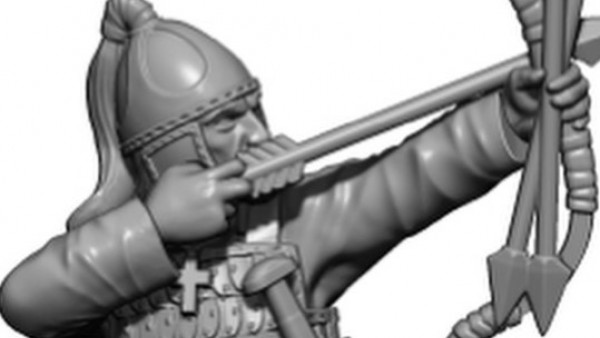
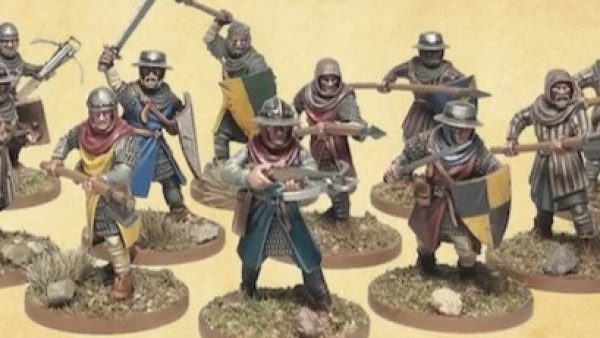
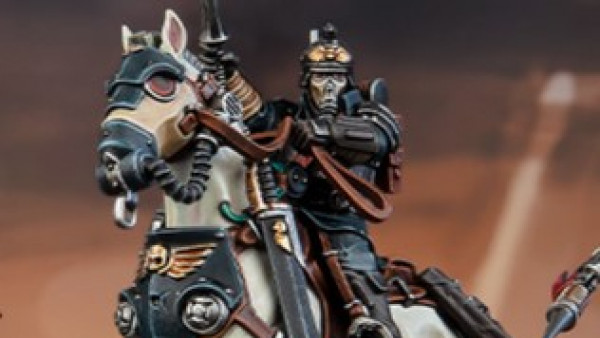
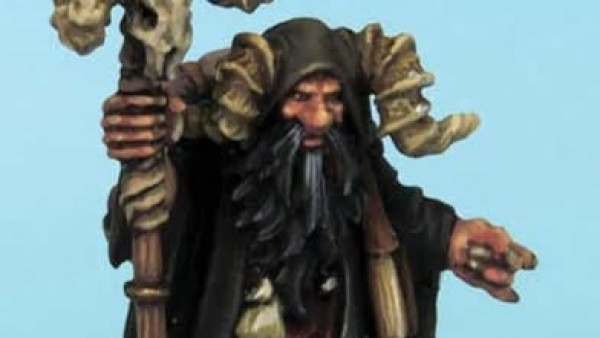
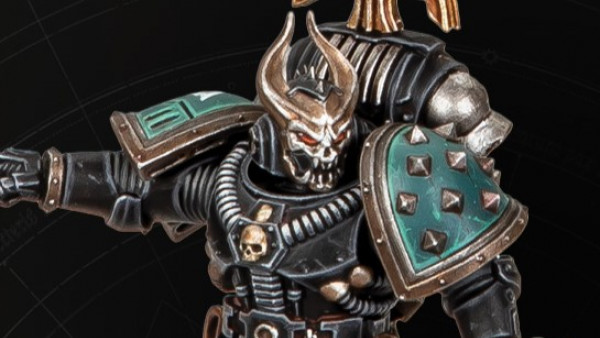
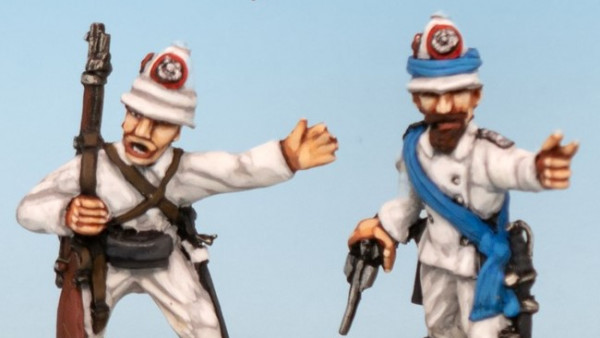
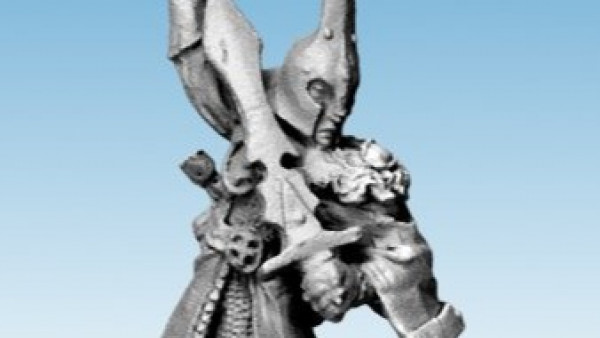
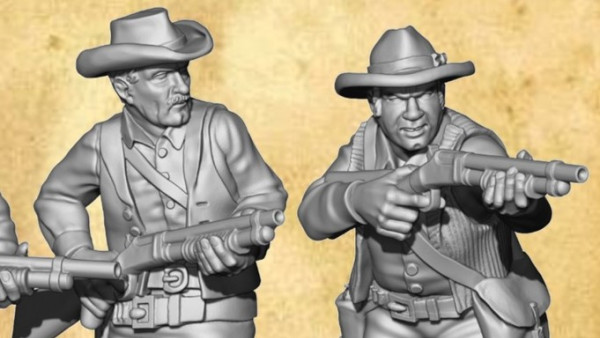
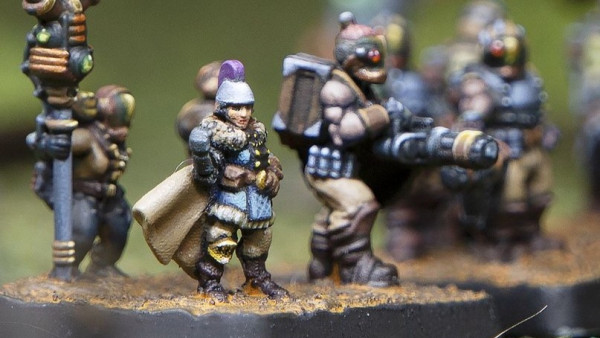
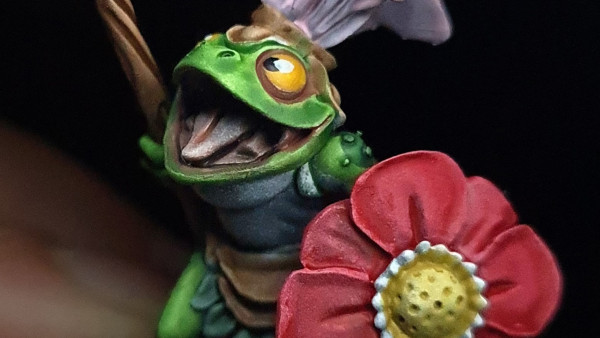
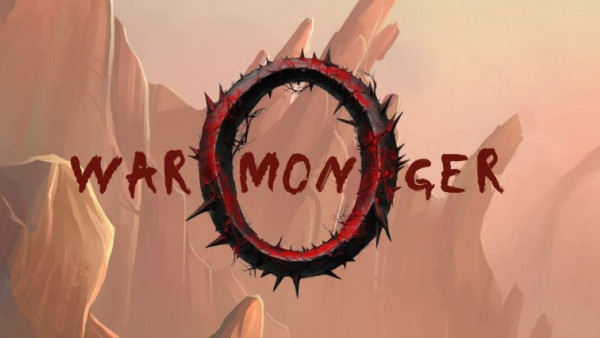
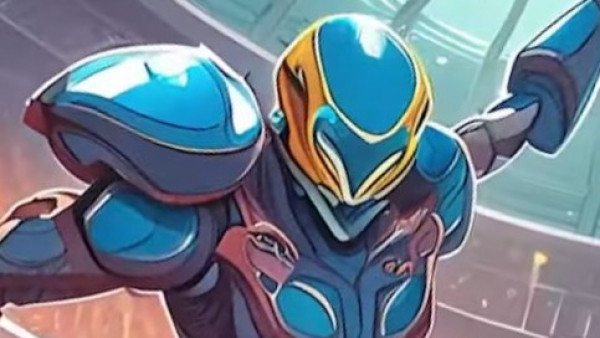
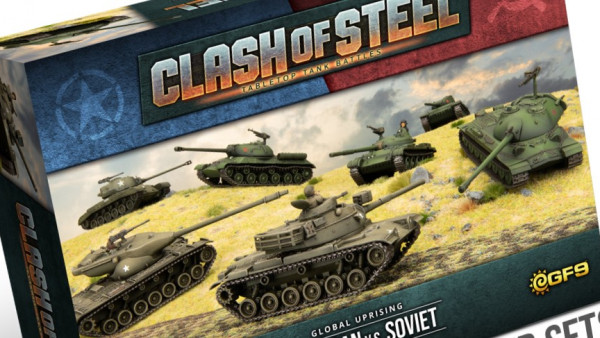
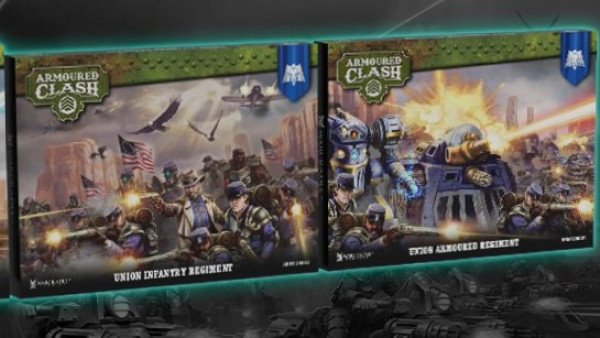
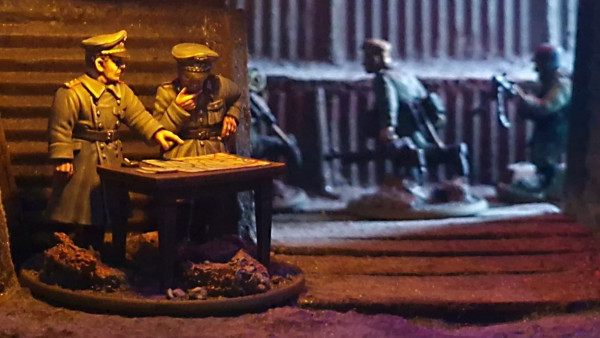

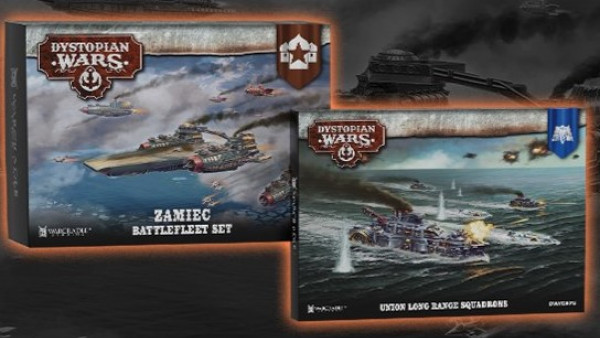
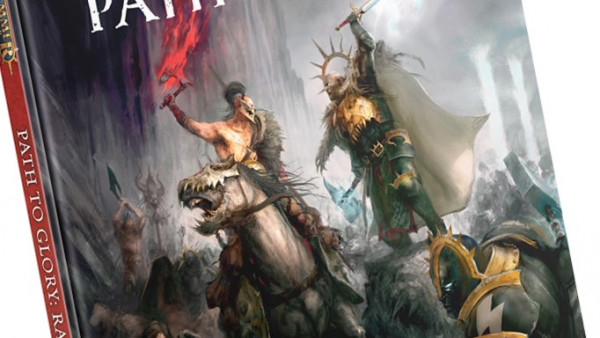


I was lucky to have older siblings who liked to read sci-fi and fantasy so I got to read their books when they had finished them. Indeed I still have my oldest sister’s copy of Lord of the Rings and 2 or 3 of her Gary Gygax’s Gord the Rogue books – she is not getting them back! The other fantasy writer that got me hooked on the genre and really made me want to collect and play Warhammer was R.A. Salvatore. I remember The Icewind Dale Trilogy as being a huge influence of me (it was nearly 30 years… Read more »
How could I forget to mention Fighting Fantasy and the Grailquest books?
wow … I can’t believe anyone else has ever read Thomas Covenant. I don’t remember the rape scene, but then it’s been ages since I read it and it was a Dutch translation as well. I think I’ve only read the first two books. It shares a bit with ‘Life on Mars’. I’ve read more horror (Stephen King … no movie ever managed to capture the books, although the tv-series of IT and the Shining came close) and Science Fiction (Jack Vance, Isaac Asimov). Tolkien’s books were the among first I ever read in English. I’d recommend the Demon Princes… Read more »
Not a big fan of horror (even though Dracula is my favourite book) but I have read some Stephen King short stories. There is one about a doctor, drugs and a small deserted island/rock in the middle of the ocean. It still gives me the creeps today thinking about it even though it has been years since I read it!
I haven’t read Lord Fouls Bane in decades. I should re-read the series. Even at a young age I recognised that opening as grim.
On another note the first half a dozen or so Slayer books are awesome
In no particular order (after the first one) Legend by David Gemmell, absolutely brilliant siege novel about an outnumbered City reinforced by Druss the Legend, an aging hard ass hero. Think Zulu but it is cold, there is magic, and no guns… The Icewind Dale trilogy by RA Salvatore, in particular the first one featuring barbarians and settlers fighting off orcs and worse. The Broken Sword by Poul Anderson. An old book but essentially Saga AoM the novel. Saxons and Dane changelings involved in a war between the trolls and the elves. The Traitor Son cycle books are also ace.… Read more »
I loved the Druss books. Funnily enough a band from my area are called Waylander (Irish Folk Metal) and I am pretty sure the lead singer told me they were named after the book – it is how I ended up checking the books out anyway.
Inspirations come from everywhere . From Adventure books for boys when I was young along with the Hobbit, 2000AD,Commando comics, Classics illustrated, Lord of the Rings, Donald Featherstone books in the library.
Later it would be the Winter King series by Cornwell along with the Cadfael mysteries and The Stainless Steel Rat along with Fafhrd and the Gray Mouser
Im sure that there are many more that have left a worm of an idea for something to do with gaming
Never read Cadfael, but would have tuned into the TV series every now and again, but I did enjoy CJ Sansom’s Shardlake books – thought it was some very good historical fiction.
I can recommend the Giordano Bruno series by SJ Parris as well which is set in a similar time period to the Shardlake ones
The first book I ever bought in the SF/Fantasy genre was by Arthur C. Clarke… Islands in the Sky, so in many ways that’s where my science fiction reading begins. I honestly don’t recall much of the story as I was in middle school at the time (and I’m in my 50’s now), but I still own the book for the nostalgia. The Hobbit computer game on the ZX Spectrum was released in 1982 and the book was with the game… that was rapidly digested and I immediately sought out Lord of the Rings. The Belgariad by David Eddings was… Read more »
Ah the Belgariad. I devoured those books in my early teens. They do seem like they were written with a trope check sheet that Eddings had to tick off, but the characters in the group are a lot of fun.
Hmmm going to show my age here…. Eagle of the Ninth Ivanhoe The Biggles books All of which were firm childhood favourites (usually gotten from the local village library). As I got older and could afford to buy them second hand from a market stall (other than the WAR and BATTLE mini comic books)….. Ballad of Phaid the Gambler (Mick Farren) Elric saga Lots of Asimov and Heinlen books, basically remembering all those dodgy 70’s era Sci-fi book covers you just don’t get anymore with the cool rocket ships on the covers that always caused an “impulse” buy. I used… Read more »
I used to love Biggles. I wonder if I still have any of my old anthology collections.
most books have parts that inspire thoughts of playing games or making a piece of terrain over the years.
Tad Williams has many good book’s memory, sorrow, an thorn, trilogy is great an tailchasers song was a fabulous story about cats a good book for kid’s to get their imagination going.
Enjoyed the dragonbone chair series.
great I got side-tracked and started Brooks shannara series will have to get them now thanks.
“Now, in no way do I defend Donaldson’s writing as in my cases it is pretty lazy, but the story that then follows after Covenant realises what he’s done and the reality of his world really changed the way I read Fantasy.” Surely that is in and of itself a defence of the writing. Far from being lazy it sounds like it is fundamental to the story and the development of the character. I have read lots of books that contain depictions of rape. And murder. I never understand why we seem to call out books depicting rape but not… Read more »
Yes, I suppose you’re right. I think it was a very interesting way to present a character and then develop him from then on.
I think it is because it is more often seen as gratuitous. Murder often develops the plot of the story whilst often rape (and other forms of violence) can be perceived as simply titillating or providing shock value. I think GoT can be guilty of this at times. The argument would be that these are serious topics that are devalued by this sort of lazy writing, but when used to develop the plot the writer is actually underscoring the seriousness of them.
Very subjective of course.
Violence can be just as gratuitous as sex, rape is usually a combination of the two. But that’s kind of my point, why does murder have less shock value as a plot device than rape? Any morally questionable act can develop a story as well as any other yet murder is the one used more often.
In terms of his prose though, Donaldson CAN be very lazy. My particular favourite example was “He was hauled into the air like a sack of miscellaneous helplessness.”
I agree that particular example seems quite shoddy, what even is a sack of miscellaneous helplessness? Useless sack of shit would be a step up from that. However I didn’t get the impression that was really what being conveyed by the article. It very much seems to imply that it is the use of rape as a plot device that is lazy.
Reading Michael Moorcock was enlightening as far as my gaming went. His novels illustrated that balance was important, if there was to much chaos in the world then a champion of order was required, too much order then a champion of chaos took centre stage. Our gaming group would search out systems which would facilitate our need to play the “alternative” roles. Be they a band of orcs/goblins looking to take out some adventurers or the Klingons/Romulans trying to keep their culture in the face of the expansionist Federation. Much fun was had playing these games; and it was all… Read more »
A lot of these books were similarly impactful on my gaming as I grew up, especially Redwall. I’d also add Biggles, which I was an avid reader of, as well as C.S. Lewis’ Narnia series and, later, Discworld. Dune also was a landmark book for me and I have read it at least four times (not counting audiobook readings). I remember starting Lord Foul’s Bane as an early teenager, not really getting it, and then making a concerted effort to read it when I was in my mid-twenties. It’s an important piece in the literary landscape, but man it was… Read more »